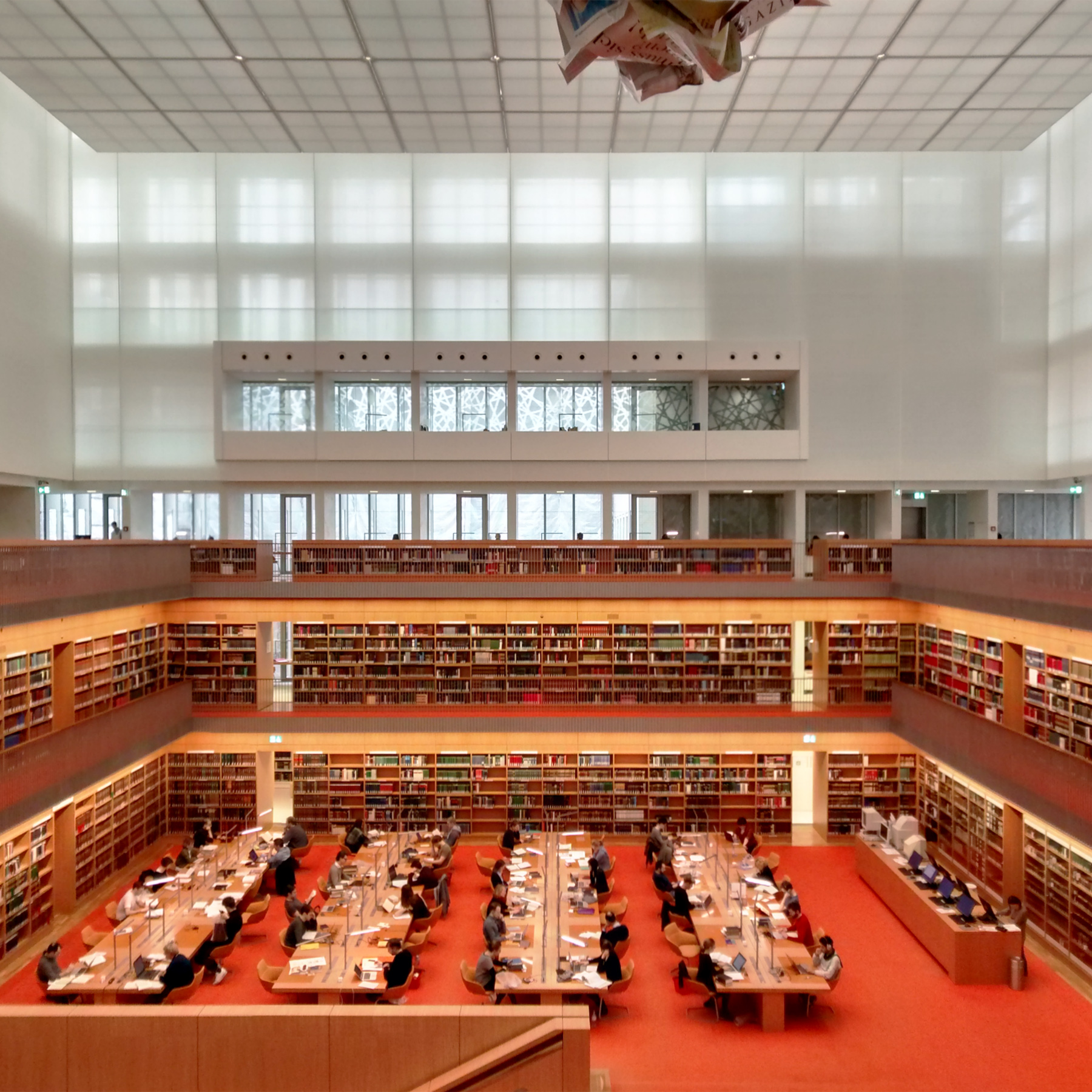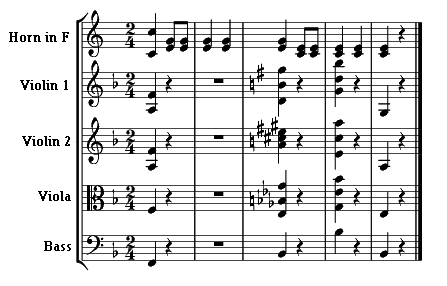|
Peter Wackernagel
Peter Wackernagel (26 July 1897 – 17 May 1981) was a German musicologist and librarian Life Wackernagel was born in Breslau as the son of the priest Paul Wackernagel. He studied history, German language and literature and philosophy in Breslau and received his doctorate in 1921. He passed the examination for a teaching profession for secondary schools. He worked as a volunteer at the and trained himself as an autodidact in musicology by attending appropriate seminars. He was also a student of Max Schneider. His piano playing was perfected through private lessons. In 1924, in accordance with his abilities and recommendations by his library director, he accepted an offer from Wilhelm Altmann to move to Berlin to take up a position in the music department of the Staatsbibliothek Berlin. He became responsible for the manuscripts department. Furthermore, he became music consultant at the '. He is the author of various music analyses for the concerts of the Berliner Philharmoniker, ... [...More Info...] [...Related Items...] OR: [Wikipedia] [Google] [Baidu] |
Musicologist
Musicology (from Greek μουσική ''mousikē'' 'music' and -λογια ''-logia'', 'domain of study') is the scholarly analysis and research-based study of music. Musicology departments traditionally belong to the humanities, although some music research is scientific in focus (psychological, sociological, acoustical, neurological, computational). Some geographers and anthropologists have an interest in musicology so the social sciences also have an academic interest. A scholar who participates in musical research is a musicologist. Musicology traditionally is divided in three main branches: historical musicology, systematic musicology and ethnomusicology. Historical musicologists mostly study the history of the western classical music tradition, though the study of music history need not be limited to that. Ethnomusicologists draw from anthropology (particularly field research) to understand how and why people make music. Systematic musicology includes music theory, aesthe ... [...More Info...] [...Related Items...] OR: [Wikipedia] [Google] [Baidu] |
Librarian
A librarian is a person who works professionally in a library providing access to information, and sometimes social or technical programming, or instruction on information literacy to users. The role of the librarian has changed much over time, with the past century in particular bringing many new media and technologies into play. From the earliest libraries in the ancient world to the modern information hub, there have been keepers and disseminators of the information held in data stores. Roles and responsibilities vary widely depending on the type of library, the specialty of the librarian, and the functions needed to maintain collections and make them available to its users. Education for librarianship has changed over time to reflect changing roles. History The ancient world The Sumerians were the first to train clerks to keep records of accounts. ''"Masters of the books"'' or "keepers of the tablets" were scribes or priests who were trained to handle the vast amount and c ... [...More Info...] [...Related Items...] OR: [Wikipedia] [Google] [Baidu] |
Max Schneider
Maxwell George Schneider (born June 21, 1992), also known by his mononym MAX, is an American singer-songwriter, actor and model, signed to Arista and Sony RED. In 2018, MAX's single " Lights Down Low" went double platinum in the US, Platinum in Canada, and Gold in Australia. This led to MAX being named an iHeart 2019 'Best New Pop Artist' nominee, and, in 2020, his single "Love Me Less" went Gold in the US and Canada. Career Schneider was raised in Woodstock, New York. He began performing at age three and acquired his first agent at the age of 14. Schneider was a swing understudy in the Broadway musical '' 13'' covering 4 roles in 2008 and 2009, and modeled with Madonna for an international Dolce & Gabbana campaign. He was the 2010 YoungArts Theater Winner, and released his debut extended play (EP) ''First Encounters'' that year. In 2012, Schneider co-wrote the song "Show You How to Do" with Ben Charles for the Disney series ''Shake It Up'' (2010). He portrayed Zander in th ... [...More Info...] [...Related Items...] OR: [Wikipedia] [Google] [Baidu] |
Wilhelm Altmann
Wilhelm Altmann (4 April 1862 – 25 March 1951) was a German historian and musicologist. Altmann was born in Adelnau (Odolanów), Province of Posen, and died in Hildesheim Hildesheim (; nds, Hilmessen, Hilmssen; la, Hildesia) is a city in Lower Saxony, Germany with 101,693 inhabitants. It is in the district of Hildesheim, about southeast of Hanover on the banks of the Innerste River, a small tributary of the Lei .... Wilhelm Altmann and his wife Marie née Louis are buried in Hildesheim, Peiner Straße on the cemetery Nordfriedhof (Zentralfriedhof). The couple had three children: Ulrich (1889-1950), Ursula (1894-1984) and Berthold (1896-1992). Literary works * '' Tonkünstlerlexikon'', 121926 * '' Kammermusikliteratur'', 51931 1862 births 1951 deaths People from Ostrów Wielkopolski County German music historians German musicologists People from the Province of Posen German male non-fiction writers {{Germany-musicologist-stub ... [...More Info...] [...Related Items...] OR: [Wikipedia] [Google] [Baidu] |
Staatsbibliothek Berlin
The Berlin State Library (german: Staatsbibliothek zu Berlin; officially abbreviated as ''SBB'', colloquially ''Stabi'') is a universal library in Berlin, Germany and a property of the Prussian Cultural Heritage Foundation. It is one of the largest libraries in Europe, and one of the most important academic research libraries in the German-speaking world. It collects texts, media and cultural works from all fields in all languages, from all time periods and all countries of the world, which are of interest for academic and research purposes. Some famous items in its collection include the oldest biblical illustrations in the fifth-century Quedlinburg Itala fragment, a Gutenberg Bible, the main autograph collection of Goethe, the world's largest collection of Johann Sebastian Bach's and Wolfgang Amadeus Mozart's manuscripts, and the original score of Ludwig van Beethoven's Symphony No. 9. Central functions and cooperation with other libraries The SBB is one of six libraries form ... [...More Info...] [...Related Items...] OR: [Wikipedia] [Google] [Baidu] |
Berliner Philharmoniker
The Berlin Philharmonic (german: Berliner Philharmoniker, links=no, italic=no) is a German orchestra based in Berlin. It is one of the most popular, acclaimed and well-respected orchestras in the world. History The Berlin Philharmonic was founded in Berlin in 1882 by 54 musicians under the name Frühere Bilsesche Kapelle (literally, "Former Bilse's Band"); the group broke away from their previous conductor Benjamin Bilse after he announced his intention of taking the band on a fourth-class train to Warsaw for a concert. The orchestra was renamed and reorganized under the financial management of Hermann Wolff in 1882. Their new conductor was Ludwig von Brenner; in 1887 Hans von Bülow, the conductor of the Meiningen Court Orchestra and one of the most famous piano virtuosos of the time, took over the post. This helped to establish the orchestra's international reputation, and guests Hans Richter, Felix von Weingartner, Richard Strauss, Gustav Mahler, Johannes Brahms and Edvar ... [...More Info...] [...Related Items...] OR: [Wikipedia] [Google] [Baidu] |
Facsimile
A facsimile (from Latin ''fac simile'', "to make alike") is a copy or reproduction of an old book, manuscript, map, Old master print, art print, or other item of historical value that is as true to the original source as possible. It differs from other forms of reproduction by attempting to replicate the source as accurately as possible in scale, color, condition, and other material qualities. For books and manuscripts, this also entails a complete copy of all pages; hence, an incomplete copy is a "partial facsimile". Facsimiles are sometimes used by scholars to research a source that they do not have access to otherwise, and by museums and archives for media preservation and Art conservation and restoration, conservation. Many are sold commercially, often accompanied by a volume of commentary. They may be produced in limited editions, typically of 500–2,000 copies, and cost the equivalent of a few thousand United States dollars. The term "fax" is a shortened form of "facsimile" ... [...More Info...] [...Related Items...] OR: [Wikipedia] [Google] [Baidu] |
Georg Schünemann
Georg Schünemann (13 March 1884 – 2 January 1945) was a German musicologist. Life Born in Berlin, Schünemann, the son of a rector, was awarded a doctorate after studying music in 1907 with his dissertation on the ''history of conducting''. After his habilitation and in 1919 he became professor, deputy director and 1932 director of the Berlin Musikhochschule in 1920. Fred K. Prieberg: ''Handbuch Deutsche Musiker 1933-1945'', CD-Rom-Lexikon, Kiel 2004, . As a collaborator of Leo Kestenberg he was concerned with the reorganization of schools and private music education. After the takeover by Nazism he was "granted leave" as director of the university after denunciations, but immediately afterwards became head of the state collection of musical instruments. From 1935 he was director of the music department of the Prussian State Library. Since 1936 Schünemann was co-editor of the journal ''Archiv für Musikforschung''. Since March 1933 Schünemann had been a member of the NSDAP ... [...More Info...] [...Related Items...] OR: [Wikipedia] [Google] [Baidu] |
Deutsche Allgemeine Zeitung
''Deutsche Allgemeine Zeitung'' (often abbreviated to DAZ) was a German newspaper that appeared between 1861 and 1945. Until 1918 the title of the paper was ''Norddeutsche Allgemeine Zeitung''. Although Wilhelm Liebknecht, one of the founders of SPD and close associate of Karl Marx and Friedrich Engels, was member of the founding editorial board in 1861, the paper became soon a conservative flagship of the German press ("Bismarcks Hauspostille"). At the end of the First World War, the name was changed to "Deutsche Allgemeine Zeitung", under the intention to form a conservative and democratic equivalent to the British newspaper ''The Times'' in Germany and give the Reich a more democratic image. Various liberal and conservative writers worked for DAZ at that time, Otto Flake was head of the Cultural Section ( called "Feuilleton" in German newspapers ), people like the historian Egmont Zechlin, the journalist Dr. Friedrich Schrader and his Swiss colleague from Constantinople Max ... [...More Info...] [...Related Items...] OR: [Wikipedia] [Google] [Baidu] |
Fantasia (music)
A fantasia (; also English language, English: ''fantasy'', ''fancy'', ''fantazy'', ''phantasy'', german: Fantasie, ''Phantasie'', french: fantaisie) is a musical composition with roots in improvisation. The fantasia, like the impromptu, seldom follows the textbook rules of any strict musical form. History The term was first applied to music during the 16th century, at first to refer to the imaginative musical "idea" rather than to a particular compositional genre. Its earliest use as a title was in German keyboard manuscripts from before 1520, and by 1536 is found in printed tablatures from Spain, Italy, Germany, and France. From the outset, the fantasia had the sense of "the play of imaginative invention", particularly in lute or vihuela composers such as Francesco Canova da Milano and Luis de Milán. Its form and style consequently ranges from the freely improvisatory to the strictly contrapuntal, and also encompasses more or less standard sectional forms. One of the most impo ... [...More Info...] [...Related Items...] OR: [Wikipedia] [Google] [Baidu] |
A Musical Joke
''A Musical Joke'' (in German: ') K. 522, (Divertimento for two horns and string quartet) is a composition by Wolfgang Amadeus Mozart; the composer entered it in his ' (''Catalogue of All My Works'') on June 14, 1787. Commentators have opined that the piece's purpose is satirical – that " tsharmonic and rhythmic gaffes serve to parody the work of incompetent composers" – though Mozart himself is not known to have revealed his actual intentions. English name The title ''A Musical Joke'' might be a poor rendering of the German original: '' Spaß'' does not necessarily connote the jocular, for which the word ''Scherz'' would more likely be used. In Fritz Spiegl's view, a more accurate translation would be ''Some Musical Fun''. The sometimes-mentioned nicknames "Dorfmusikantensextett" ("village musicians' sextet") and "Bauernsinfonie" ("farmers' symphony") were added after Mozart's death. Structure and compositional elements The piece consists of four movements and takes a ... [...More Info...] [...Related Items...] OR: [Wikipedia] [Google] [Baidu] |


.jpg)


